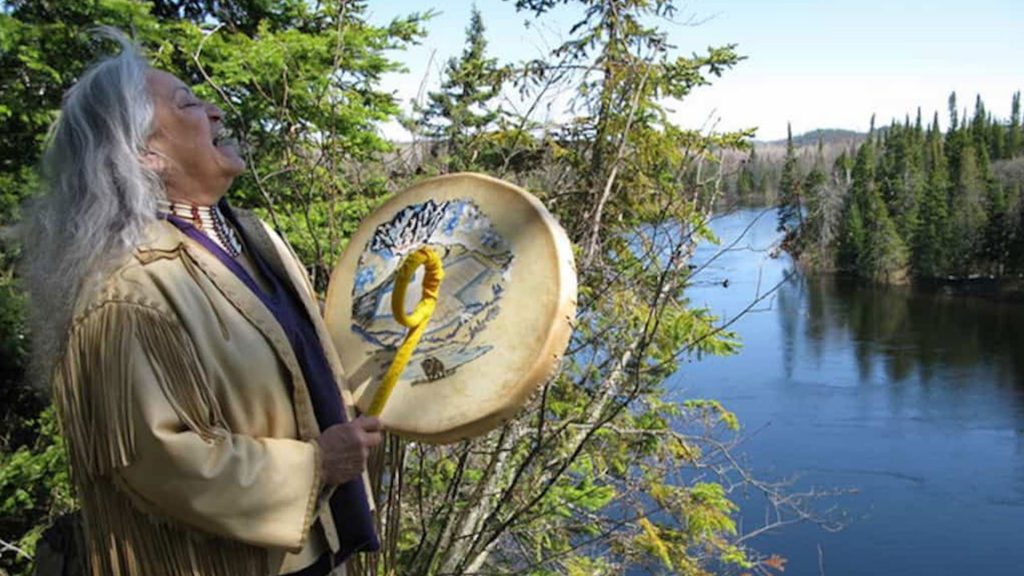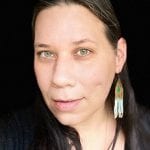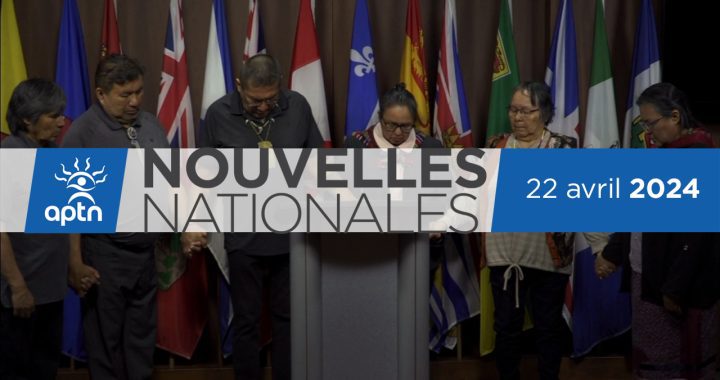
Grandmother Isabelle Meawasige, Ojibway/Algonquin from Serpent River Nation. Photo provided by the Nokomis Project.
In the midst of historically difficult times, a group of Anishinaabe grandmothers offered messages of love and hope to support younger generations of Indigenous people.
Speaking during an online event for International Women’s Day, the Elders spoke about personal empowerment, historic lessons and ancestral strength.
In her work, Margaret Behan, Red Spider Woman (Arapaho/Cheyenne) highlights the need to love. Telling people they’re loved, no matter what, can give them direction when they are lost and struggling, she says.
“Oppression, historical trauma has a big broad package of dysfunction put on us,” she told a Zoom audience during the event on March 8. “And we buy into it. We criticize and judge our own people, our own race. We have to find a way to deter it, turn it around.”
Grandmother Isabelle Meawasige is part of Kii Ga Do Waak Nookimisuk the Grandmothers Council of the North Shore of Lake Huron. She invited Grandmother Margaret Is to co-host the gathering called “Weaving The Web Across Generations.”
Grandmother Margaret is also known as a founding member of The 13 Indigenous Grandmothers World Council.
Grandmother Margaret believes in the importance of remembering generations forward and backward. She grew up listening to her grandparents speaking of “those who are not here yet, and those who are not here anymore, who have moved on.”
This planted a deep awareness of the strength that comes from knowing the ancestors are behind you, and motivation for the people to come, she says.
Grandmother Isabelle echoes that teaching, by reminding us of the generations before us. “Indigenous people have survived, so we have always been prepared,” she explains. “Knowing the wild foods, hunting, fishing. Learn the foods around you.”
Grandmother Margaret adds, “People ask me why I plant corn, you could just buy it at the store, they say. I tell them, ‘I’m giving you a road map.’”
“Some of us are 70, even 80 years old,” adds Grandmother Isabelle. “We’re miracle people. How do we survive? We sit down and we pray. We never lost that connection to the Great Spirit.”
‘As grandmothers, how do we help?’
Through her work, Grandmother Isabelle highlights the importance of ceremony when inviting young people into her family of grandmothers. She welcomes Youth, and by participating, they learn the ceremonies, preserve and continue.
She believes in the importance of using the strength that comes from upholding traditional roles and responsibilities.
“And, as grandmothers, how do we help these people? What can we do to make a difference? We come together and support each other and give each other that energy Isabelle is speaking about,” adds Grandmother Margaret.
She says instead of avoidance, we have to use the past as a reference. “Not to drag it up to beat us up again — we have to have some resolutions, some answers. Within each of us, we have answers from our life experience,” she says.
“Moving into the future, using the Internet, the phone, we’ll use whatever it is to help ourselves, and help the younger people.”
By promoting strength and healing through reconnecting to culture, the grandmothers are moved to continue in this work, and sharing with younger generations.
“Teaching them how to do the naming ceremony, mentor them in this,” says Grandmother Margaret. “I let the younger ones run the sweat, those who have fasted and been sacred. Now it’s their time.”










